Calls for more help for children in Afghanistan suffering from hunger
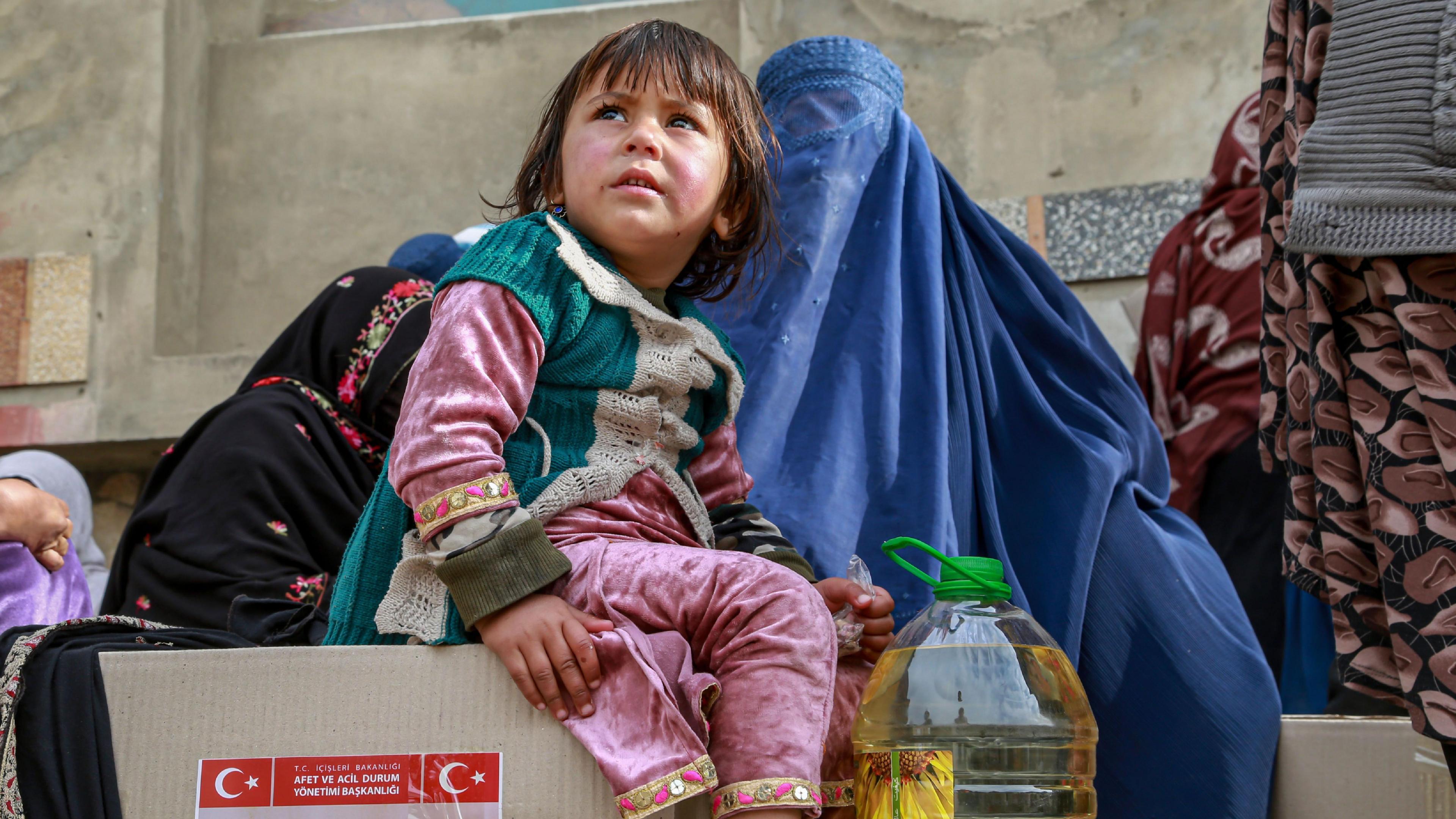
Families are sometimes able to get food at aid centres
- Published
The charity Save The Children UK has told Newsround that much more needs to be done to help children in Afghanistan who are going hungry.
According to the United Nations, 3.2 million children under five are malnourished in the Middle East country - meaning they aren't getting enough to eat.
Experts say the country is facing a humanitarian crisis that deepens every day, with much of the country living in extreme poverty after years of war and economic problems.
Also, the political situation in the country is making it difficult for aid to reach many of those who need it.
Find out more
The Afghan children having to work instead of going to school
- Published17 January 2022
Inside a secret school for girls in Afghanistan
- Published26 January 2023
Who are the Taliban?
- Published29 May 2019
Who are the Taliban and what's happening in Afghanistan?
- Published17 August 2021
What is the situation in Afghanistan?
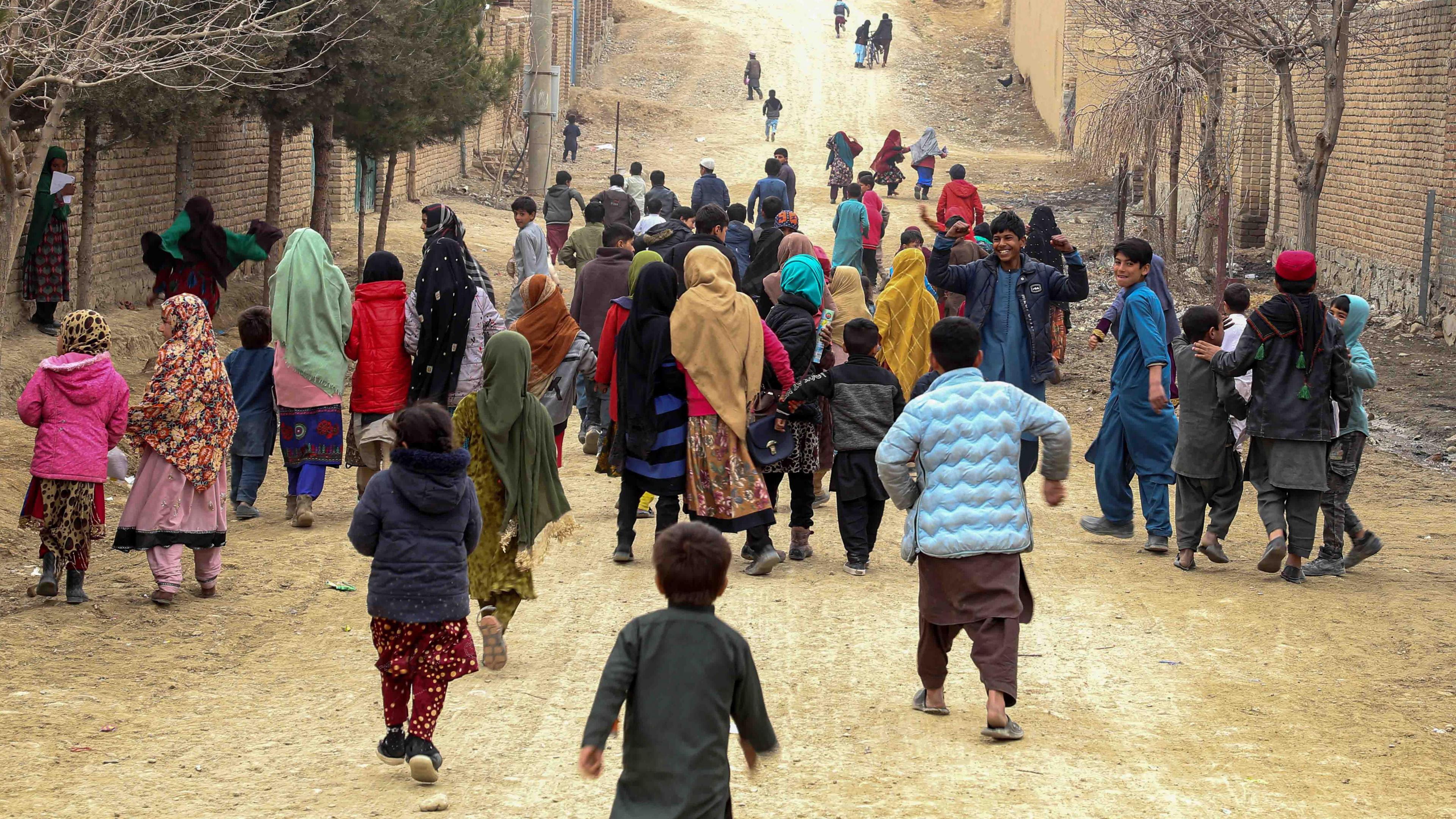
Following a long war, US and UK troops left Afghanistan in 2021, and since then the country has been ruled by an extreme Islamist group called the Taliban, which also ruled Afghanistan from 1996 to 2001.
According to the United Nations, 23.3 million people living there, including 12.6 million children, are in need of humanitarian help.
It says Afghanistan is facing many different challenges at the same time - from climate change, to poverty to a lack of education and healthcare.
According to the UN's 2024 Humanitarian Action for Children report, less than one in five (16%) Afghans are able to meet their basic needs and two-thirds of households (67%) don't have full access to safe water.
Afghanistan: The children working instead of going to school
One of the biggest challenges facing children is being able to eat the amount of food that they need to stay healthy and the health problems that come when they don't.
"A lot of families experience hunger because their livelihoods have been destroyed by floods or drought. Others cannot find work, or do not get paid enough to give their children enough regular meals or proper food to eat," Liz Bradshaw, Senior Conflict and Humanitarian advisor at Save the Children UK, told us.
"As a result, some children, particularly those that are under five years old, are malnourished, and without treatment, they can get sick, and their bodies can shut down. We know that some children are being forced to work instead of going to school to help their families and look after their siblings."
Advice if you're upset by the news
- Published29 August 2022
What did BBC reporters find out?
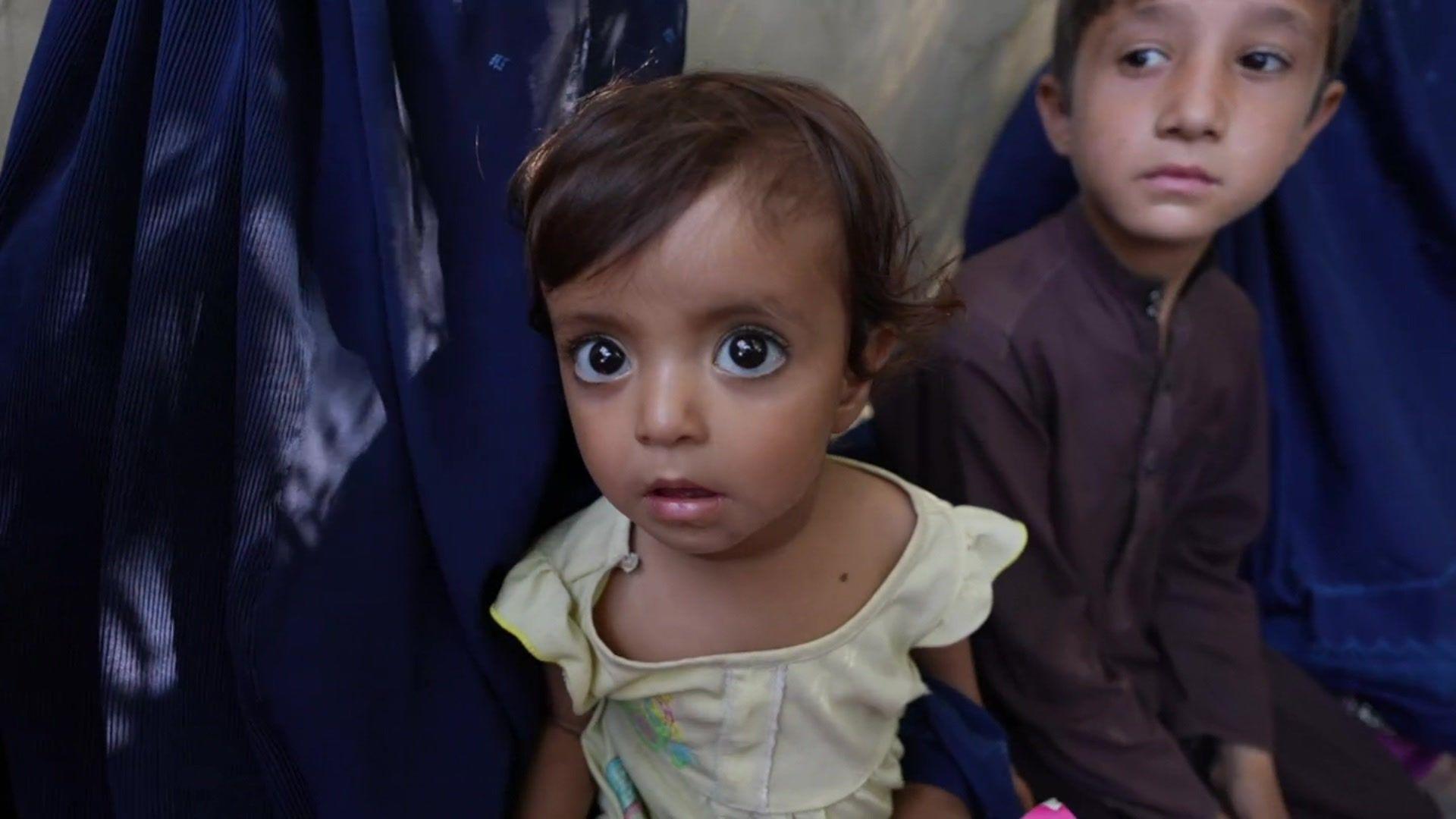
Children and their families were queuing up for medical care
A team of BBC reporters visited a hospital where they found many very sick children, large queues of families waiting for help, but few facilities and doctors to help them.
Lots of the children were suffering from malnutrition and other avoidable illnesses, which could be improved with a healthy diet.
BBC Reporter Yogita Limaye also found that due to the lack of food, children who don't go to hospital aren't growing properly.
She and her team also visited an area where help had arrived and were able to see that improvements can be made when action is taken to prevent the children from getting ill in the first place.
Why is it so difficult to get aid to those that need it?
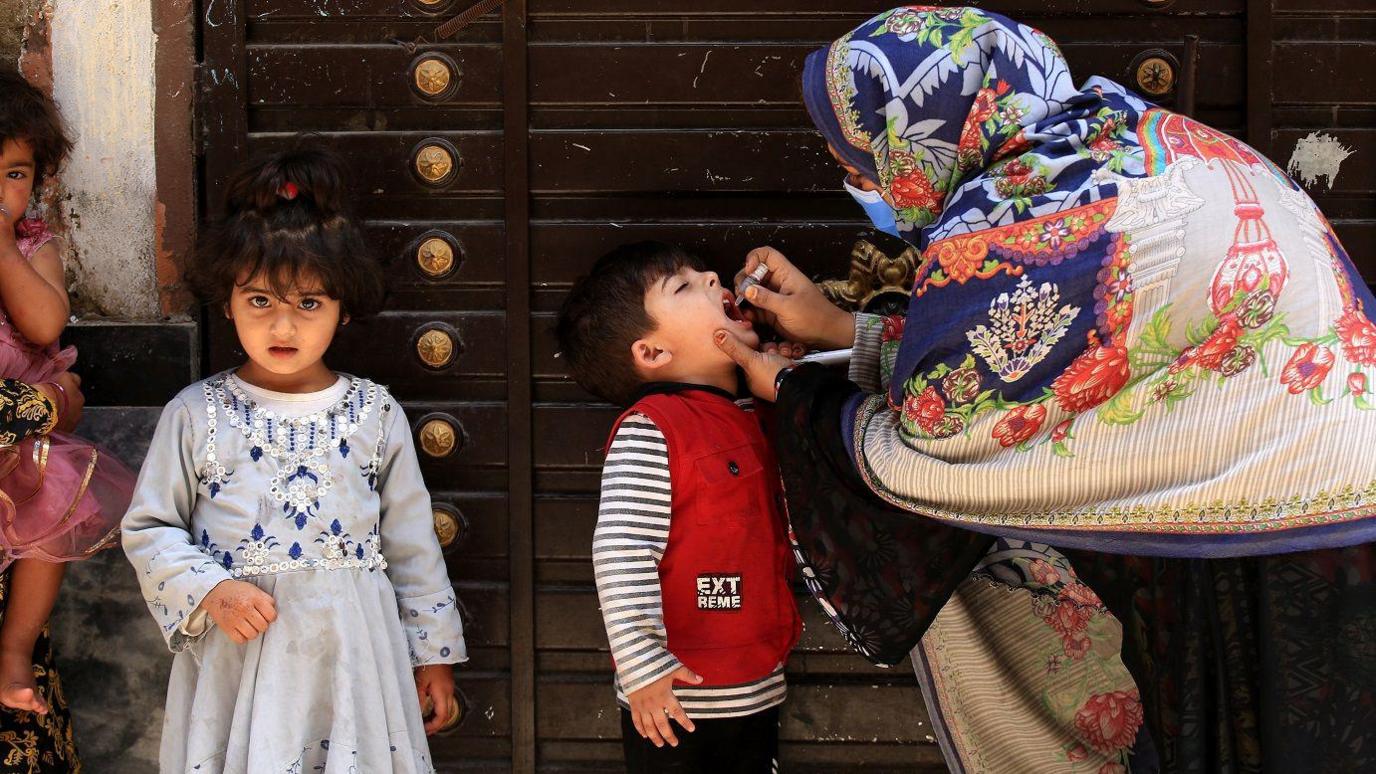
Children need food and medical treatment to stay healthy
Since the Taliban came back to power, international aid funding to the country has been largely stopped.
A number of charities from around the world are working to help people in the country, but getting help to those that need it is very difficult.
The Taliban have strict rules that restrict what women are and aren't allowed to do, including a ban on attending university and a ban from nearly all jobs, including teaching.
Some charities and non-profit organisations have had to pause delivering aid, as Afghan women are not currently able to work with them, and the Taliban has also banned female aid workers from doing their jobs.
BBC education show launched for children in Afghanistan
- Published2 April 2023
What is being done to help?
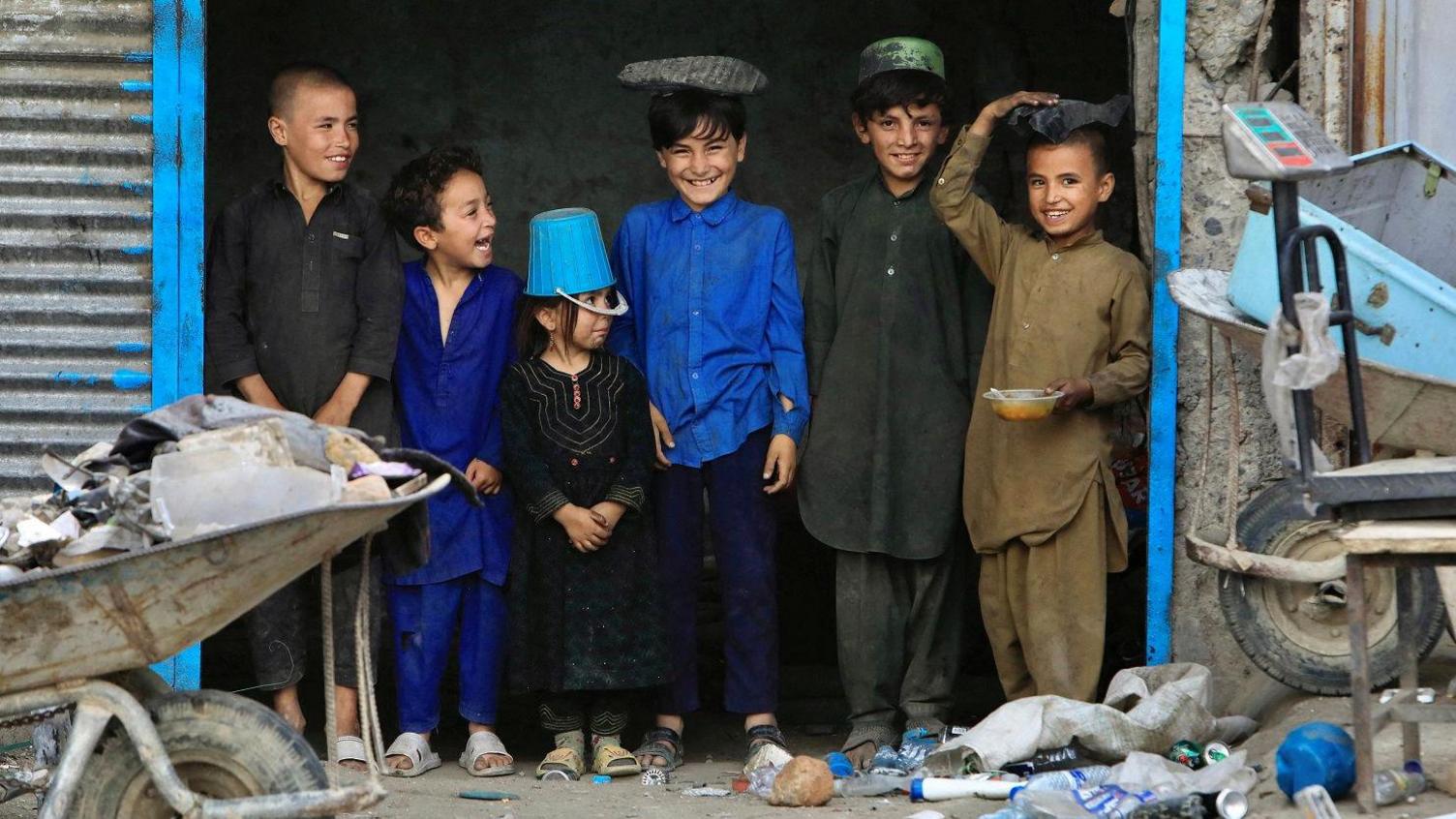
Aid is still being given through charities working in Afghanistan, although raising money isn't easy.
"In the past two years, we've seen dramatic aid cuts to Afghanistan, the UK last year cut funds by around 50% which has continued into this year and the US has cut funds as well," reported Yogita.
She explained that these cuts mean that nutrition programmes where aid workers used to go to settlements and villages giving food supplies and food sachets to children and families have largely stopped.
Another issue is that donors around the world don't want their money to be given to the Taliban government, which makes delivering aid on the ground very difficult.
“While the reality for children in Afghanistan feels grim right now, there are organisations like Save the Children delivering aid and working tirelessly to support families that are struggling to cope," explained Liz Bradshaw.
"For example, we provide children with access to healthcare, education, and give their parents or guardians cash to help them get back on their feet. But we need to do more.
"We are calling for the UK government to step up their efforts and provide more money so that the aid response reaches as many families as possible.”
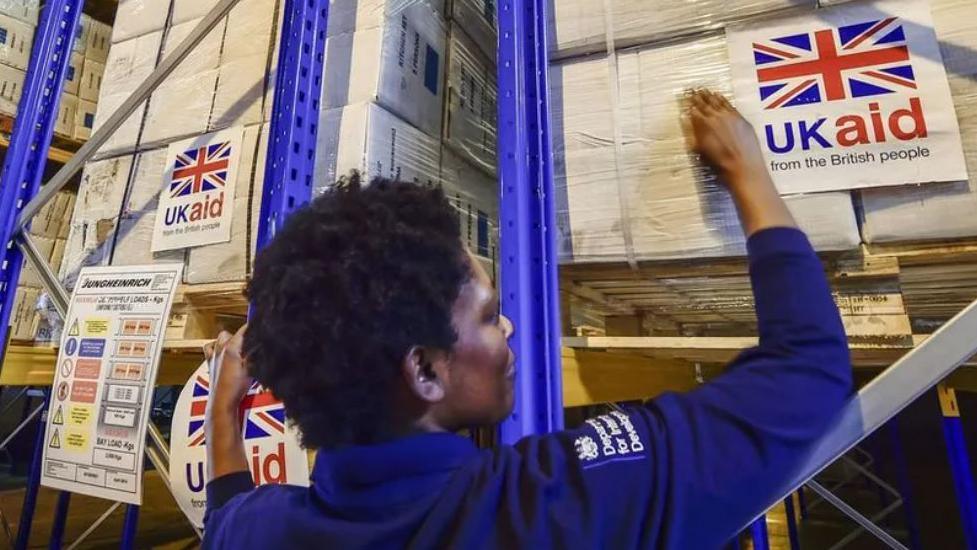
Charities are calling for more aid to be sent to the country
We asked the UK government about its plans to help children in Afghanistan, and Development Minister Anneliese Dodds told us that she recognises the difficulties faced by the Afghan people, especially women and girls.
She said that the UK is the second largest donor to the Afghanistan humanitarian response to date in 2024, adding: “We continue to work.. to improve access to life-saving support for some of the most vulnerable people in Afghanistan, including women and children.
"Last month we provided a further £40 million to the World Food programme and remain committed to working with partners to help address the terrible situation.”
